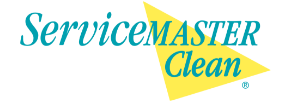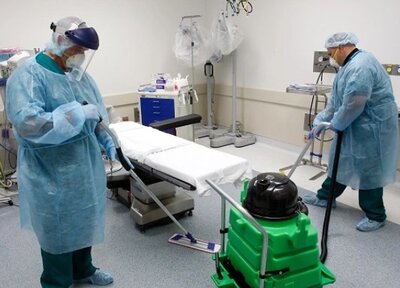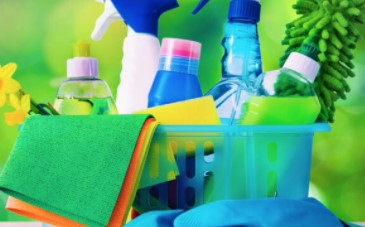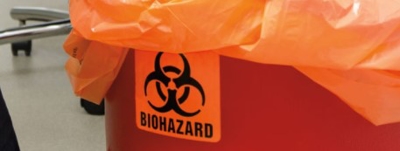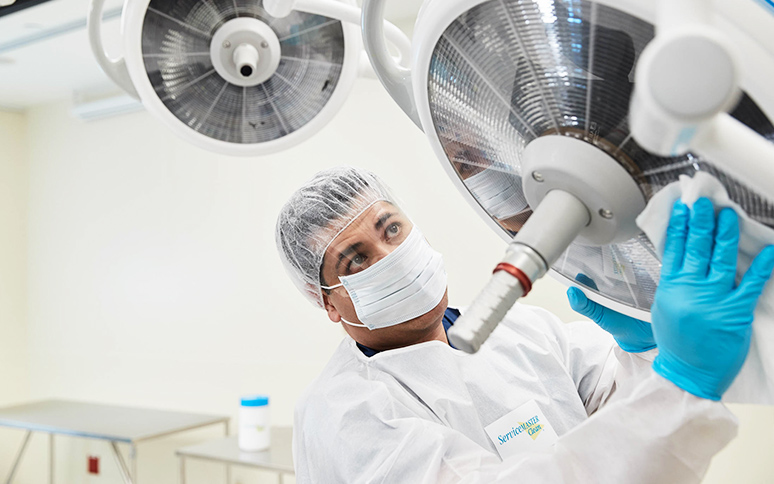How to Avoid the Spread of Infection in Dentist Offices
Implementing certain infection control practices is important to the safety of both patients and staff members. With proper cleaning, sanitization and disinfection procedures in place, you can help prevent the spread of germs and diseases that could be easily transmitted within a dental setting. Read these recommendations from the experts at ServiceMaster Clean® to help you prevent the spread of infection in your dental office.
1. Obtain Your Patients' Medical Records
If you're unaware of your patients' medical histories, you won't know what precautions you should take with each one. Obtain complete and accurate medical records, and pay attention to specific diseases that may be highly infectious, including:
Hepatitis
Staphylococci
Herpes
Respiratory infections
Lymphatic system disorders
2. Regularly Disinfect Equipment and Sterilize Instruments
After seeing each patient, follow protocol to keep all treatment spaces disinfected. Some steps you must follow include:
Clean surfaces and countertops with disinfectant.Sterilize any dental instruments you've used, including tweezers, chisels, and scrapers.Properly dispose of all needles and syringes into a puncture-resistant container.Disinfect any equipment you used during the appointment, including the dental chair.
3. Use Personal Protective Equipment
Whenever you're working with a patient, you should wear the right personal protective equipment (PPE). Gloves, surgical masks, and protective eyewear can prevent contamination from blood, mucus, and saliva. After you've assisted a patient, remove your gloves and thoroughly wash your hands before putting on a new pair. Since your uniform, laboratory coat, or disposable gown could easily become soiled with blood or other bodily fluids, you should change your gown immediately if you suspect contamination. Otherwise, change your gown at least daily.
4. Maintain Proper Hand Hygiene
According to the Centers for Disease Control and Prevention (CDC), hand hygiene is the most important step in preventing the spread of infection. You should always wash your hands when you encounter the following situations:
Before you treat a patient
After you treat a patient
Before putting on gloves
After removing your gloves
After touching anything that could be contaminated by saliva or blood
When hands or gloves are visibly soiled
Before leaving your dental practice
While you may feel confident that your gloves have been enough to protect you, there's a reason professionals recommend washing your hands after glove use anyway. During use, your gloves may have been unknowingly punctured, allowing bacteria to come into contact with your skin and spread rapidly. Wash your hands frequently to play it safe.
5. Get Vaccinated
The CDC recommends that all dental professionals and students get appropriate vaccinations to help prevent the spread of disease and infection. Suggested vaccines include:
The flu
MMR (measles, mumps, and rubella)
Chickenpox
Hepatitis B
TDAP (tetanus, diphtheria, and pertussis)
Why Infection Control Practices Are Essential
A dentist office cleaning checklist that includes proper infection control practices can help keep your office environment safe from the viruses and bacteria responsible for communicable diseases such as HIV, tuberculosis, hepatitis, and more. If you're able to limit the spread of germs through effective office sanitization and disinfection, you can help reduce the probability of exposing yourself, your staff, and your patients to communicable diseases.
As a dental professional, a positive patient experience is your number one priority. That's one of many reasons why addressing office cleanliness and infection control is so important to your business. If you need an expert cleaning service for your dental office, call the professionals at ServiceMaster Clean. Our healthcare cleaning services provide a range of cleaning, sanitization and disinfection procedures developed for specific environments to help keep your office environment safe.
